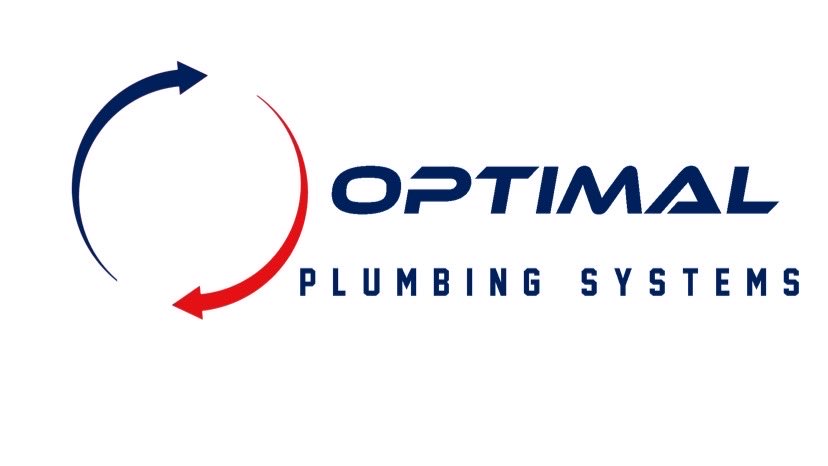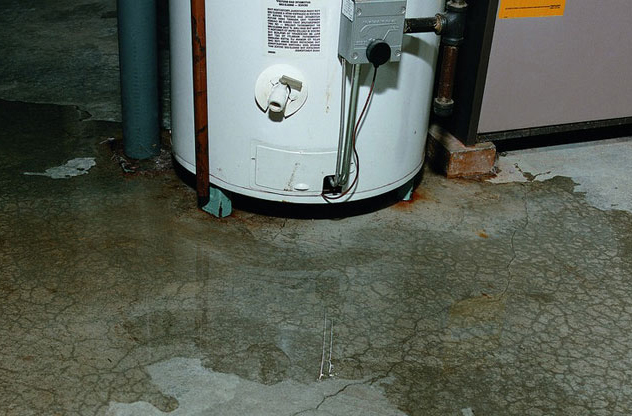You purchased a tankless water heater for its endless hot water, but now it’s spewing water where it shouldn’t. What in the world is going on? Is the hype for tankless water heaters just that? Or is there something else going on?
At Optimal Plumbing Solutions, we’ve seen our fair share of leaking tankless water heaters over the years. We’re certified with some of the top tankless water heater brands, so we know what can cause them to leak and ways you can fix them. We want to pass this knowledge on to you so you understand what may be happening to your tankless.
By the end of this post, you’ll find out what causes irritating tankless water heater leaks and how to solve them.
Reasons Tankless Water Heaters Leak
Tankless water heaters leak for three main reasons they are:
- Hard water
- High water pressure
- Incorrect installation
Let’s jump into these problems and their solutions.
1. Leaks Caused by Hard Water
We put this as number one in our list because hard water is one of the biggest causes of tankless water heater leaks. Hard water is water with large amounts of minerals like calcium and magnesium and occurs naturally all over the US. This hard water leaves behind a white scale that blocks your pipes and slowly eats through them.
Map of water hardness across the US

Solution:
To prevent your water heater from leaking due to hard water, you can do both of these things:
- Flush your water heater
- Invest in water filtration
Let’s break these down.
Flushing a Tankless Water Heater
Flushing is the process of running a cleaning solution through your tankless water heater to remove scale buildup. Flushing your water heater is one part of tankless maintenance that needs to be done yearly to keep it running smoothly. If your water is really hard or you have a big family, you may even need to maintain your tankless twice a year.
Note: If you leave the scale in your tankless for too long, it may be too late to clean it. Maintaining an old tankless water heater can expose weakened portions of your pipes and cause a leak.
If you see hard water signs around your house, flush your tankless water heater as soon as you can. Because as our technician Omar says:
“Inside a tankless water heater will look two or three times worse than the buildup you see around your house. If you see signs outside your water heater, imagine what you can’t see on the inside.”
Isolation pipes for a tankless water heater blocked by hard water buildup

Purchasing Water Filtration
Protecting your water heater with water filtration will also keep it from leaking. Not to mention you’ll follow most manufacturers’ warranty requirements for your tankless.
Your choices for water filtration are:
- Heater treater – A heater treater is a device that provides minimum protection for your tankless water heater. This device doesn’t remove hard water, but it slightly reduces it.
- Water softener – A water softener removes most of the hardness minerals in your water to stop hard water issues at the source. Without minerals in the water, it will feel smooth.
- Whole-house carbon water filter – A water filter will remove chemicals you don’t want in your water. A filter will also make your water taste and smell fresh.
- Flow-Tech – Flow-Tech is a device that stops hard water from causing you or your appliances problems without removing hardness minerals.
Note: These options can be mixed or matched except for a water softener and Flow-Tech. They counteract each other.
2. Leaks Caused by High Water Pressure
If your water pressure is higher than city regulations (80 psi for Los Angeles), you could damage your water heater and cause a leak. Just think of pressure washing a balloon. It’s going to pop.
Solution:
To protect your tankless from pressure issues, you can get these things installed:
- Expansion tank
- Pressure relief valve
Pressure Relief Valve (Regulator)
The pressure relief valve is a valve that attaches to your mainline and keeps the water pressure coming into your home at a safe level.
Expansion Tank
An expansion tank helps protect your system from pressure spikes. If the city works on the mainline water and turns it back on, an unprotected system can leak or break down. Expansion tanks also relieve water pressure that builds up in the water tank as you heat water.
A pressure gauge with off-the-chart readings

Pressure Relief Valve (Regulator)
The pressure relief valve is a valve that attaches to your mainline and keeps the water pressure coming into your home at a safe level.
3. Leaks Caused by Incorrect Installation
Tankless water heaters are very sensitive machines, and each one has different specifications for installation. If whoever installs your tankless water heater is not detail-oriented, they could set it up in a way that leaks due to:
- Insecure fittings – The connections in a tankless water heater are vital because your plumbing is only as strong as your weakest fitting. When water rushes through your mainline and into your tankless, one untightened fitting could cause a big leak.
- Improper venting – Tankless water heaters also need proper venting to keep from leaking. Since tankless water heaters deal with heat and water, they create condensation. If the vent is not secure, you will get that condensation leaking out and onto your water heater.
Solution:
To correct these issues, you’ll need to reach out to a plumber to have them fixed. Think you have a tankless water heater that isn’t installed correctly? Check out this blog on the top ways tankless water heaters are installed incorrectly.
Bonus Reason: False Leaks
One thing that might look like a leak is water that drips from a condensate line. This water comes out of the condensing water heater. Condensing tankless water heaters will drip some acidic water. This is normal, but it can be dangerous.
Acidic water can be harmful to:
- Pets
- Children
- Your floor
So, if you don’t want to worry about acidic water, you can get a neutralizer. A neutralizer pulls the acidity from the condensate water, so it’s safe.
Residential and commercial Noritz neutralizers

What Can I Do if My Tankless is Leaking?
Tankless water heaters can leak because of hard water, water pressure issues, and incorrect installations. Now that you know this information, you can take the next steps to solve your leak.
For leaks caused by hard water, you can flush your tankless yourself or reach out to a plumber. Whichever method you decide to use, we’ve provided these articles for you to delve deeper into the subject:
- The 4 Steps To Flushing a Tankless Water Heater
- 2 Types of Tankless Water Heater Maintenance: Why They’re Important
If you want to do more for your tankless and protect it according to manufacturer standards, you can read up on the following water filtration options and choose the best option to suit your needs.
- Flow-Tech: What It Is and How it Saves You Cash
- Water Filtration: Water Softener vs. Flow-Tech
- Water Softeners: A Crash Course
- Water Filtration: Water Softener vs. Flow-Tech
Lastly, if you have leaks for any reason and want our help, call us at +19169176280 We can fix your problem and walk you through the process.

